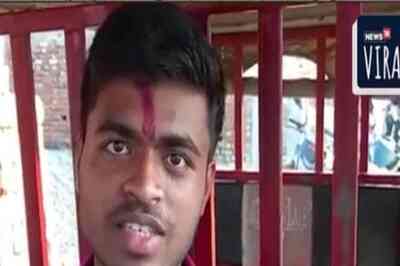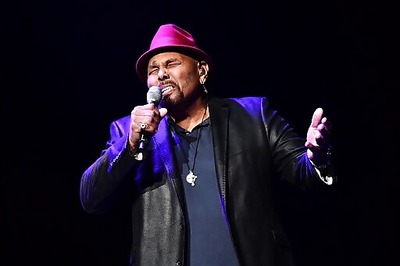
views
Political leaders in India, at some point in their political careers, have had to take the difficult decision of choosing a successor. And more often than not, the leaders have chosen to pass on the baton to their sons or daughters. The nephews, on most occasions, have been at the receiving end.
Ajit Pawar’s decision to finally break away from his uncle, NCP patriarch Sharad Pawar, to join the BJP-led government in the state, is also being seen as a byproduct of the turf war within the NCP for the inheritance of Sharad Pawar’s political legacy.
On one side is his nephew whom Pawar senior sent to Vidhan Sabha for the first time in early nineties after Maratha strongman shifted base to New Delhi to join Narsimha Rao government as Defence Minister in 1991.
He chose to nominate son of his elder brother to the assembly to oversee party organisation in his absence in the state.
It was many years later that Pawar decided to bring his daughter Supriya Sule to Lok Sabha, thereby creating an alternate line for political succession.
Ajit Dada Pawar, rising up in the ranks, is considered to be a mass leader, able administrator and a quick decision maker. His followers see him as the man who was active in politics and helped build the party long before Supriya Sule was in politics. Ajit Pawar saw his chance to become the chief minister when the NCP bagged more seats that Congress in the 2004 assembly elections, but was denied that position.
The tension within the family reached its peak, it is said in recently held Lok Sabha polls. Ajit Pawar felt that Sharad Pawar had put all his might into seeing that his daughter, Supriya Sule, won from her Parliamentary seat of Baramati, but the party patriarch did not put half as much effort into supporting the candidature of Parth Pawar, Ajit Pawar's son, who lost from Maval Lok Sabha seat by over 2 lakh votes.
Over the past 24 hours since Ajit sent shockwaves within the state by trying to stage a coup within the party, it seems the tables are turning against him. Many MLAs have deserted him to prove their loyalty to Sharad Pawar. As of now, it seems the question of political inheritance between Ajit and Supriya Sule, who has mostly maintained a silence over the issue, has been decided in Sule’s favour permanently.
The same script of power tussle, especially within the regional parties, has played out many times over the last 70 years in India. The nephew challenging the party patriarch who intends to hand over his political legacy to his child. In fact, a similar script played out in Maharashtra itself around 13 years ago when Bal Thackeray’s nephew Raj Thackeray had to exit the party and form Maharashtra Navnirman Sena in 2006 after it was clear that son Uddhav Thackeray will succeed Bal Thackeray, the late founder of the firebrand political party.
The second example is the Dravida Munnetra Kazhagam (DMK) and the nephew here was late Union Minister Murasoli Maran, who was once the most trusted confidant of his uncle and the late DMK patriarch M Karunanidhi.
But though he was way senior by age and stature, son MK Stalin was the undisputed heir. Maran even threatened to quit active politics in 2001, but reconciled and accepted the inevitable. Today, his sons Dayanidhi and Kalanidhi Maran, owners of the Sun TV network, are only in the periphery of a party which is ruled by Stalin.
The third example is of the coup within Telangana Rashtra Samithi (TRS).
The right of the K Chandrashekar Rao’s (KCR) 42-year-old son Kalvakuntla Taraka Rama Rao (KTR) to inherit his father’s legacy was challenged by Thanneru Harish Rao, KCR’s 47-year-old nephew and long-time confidant.
In the north, Shiromani Akalli Dal went through a similar turmoil a decade back when Prakash Singh Badal faced a challenge for leadership from his nephew Manpreet Badal when Badal senior was seen to be leaning towards his son Sukhbir.
Manpreet first revolted to launch his own party. Later he joined Congress and is now a minister is Amrinder Singh government. Prakash Singh Badal and his son continue to hold the reins of power in the SAD.



















Comments
0 comment